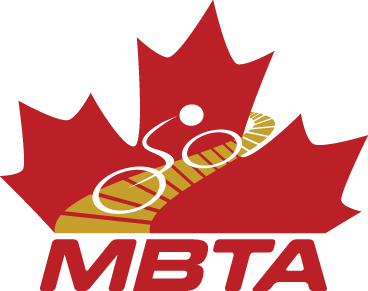Regional economic impact study shows major growth of mountain bike tourism in Sea to Sky Corridor.
Vancouver, BC – June 21, 2018 – Whistler, Pemberton, Squamish, and North Vancouver receive a significant share of the estimated 9.2 million overnight visitors that come to the Vancouver, Coast and Mountains tourism region each year according to Destination BC’s Regional Tourism Profile. An increasing number of visitors are coming specifically for mountain biking from other parts of BC, Alberta, the US and Overseas. BC has gained legendary status as a mountain biking destination from being featured in countless videos, photographs, and media articles in print and online publications over the past two decades. Mountain biking has transitioned from being a fringe sport into a mainstream recreational activity, following a similar growth pattern as skiing and snowboarding. Mountain biking is being embraced by communities throughout the province who see its value both as a local recreation asset as well as a tourism generator.
The Mountain Bike Tourism Association (MBTA), in cooperation with community partners and Destination British Columbia, has released the overall results from the 2016 Sea to Sky Mountain Biking Economic Impact Study. The overall results include a comparison with the previous study completed in 2006 using the same methodology.
The results show:
- Mountain biking visitor expenditures in the Corridor has increased by nearly 100% since the 2006 study, rising from $31.7 million in 2006 to $70.6 million in 2016.
- The number of jobs supported by mountain bike tourism has grown from 309 in 2006 to an estimated 687 jobs in 2016 with wages totaling $35.9 million.
- Taxes generated by mountain bike visitor spending grew to $18.6 million in 2016 compared to $8.3 million 10 years earlier.
Squamish and North Vancouver have seen the greatest growth in visitation and tourism revenues. Visitor spending has more than tripled in Squamish since 2006. Out-of-town visitors accounted for approximately 99,000 rides and $9.9 million in visitor spending in 2016. North Vancouver has seen spending by visitors and Metro Vancouver residents (not including North Shore residents) increase 476%. Over 61,000 rides were taken by visitors coming from outside the region while Metro Vancouver residents accounted for over 164,000 rides. Combined, visitors and Metro Vancouver residents spent approximately $12.1 million related to mountain biking on the North Shore in 2016.
“We use and reference the study often. Having data to back up our claims supports our conversations with all levels of land management and the community” said Christine Reid, Executive Director of the North Shore Mountain Bike Association (NSMBA).
Whistler continues to be the flagship for the region and the province in terms of generating annual mountain bike visits. In 2016, 102,500 out-of-town mountain bike visitors took 533,000 rides in the Whistler Mountain Bike Park and the Whistler Valley trail network accounting for $46.6 million in annual visitor spending, a 106% increase from 2006.
Pemberton was not part of the 2006 study, however, in 2016 the small hamlet north of Whistler attracted almost 3,000 visiting riders who spent $858,000 in the community.
The growth has been a boon for tourism in the communities, but it is not without challenges, particularly for the mountain bike clubs who are maintaining the trail systems largely through volunteer labour. Mountain bike clubs around the province are struggling to keep up with the demand and are seeking funding to increase their capacity to build and maintain trails. To their credit, the Resort Municipality of Whistler, the District of Squamish and the District of North Vancouver provide grants to their local mountain bike clubs to assist in managing and maintaining the trails. This is not always the case in other parts of the province where communities are facing similar maintenance challenges. Trails are often located on Crown land outside of municipal boundaries making it difficult for local governments to allocate funding for adequate maintenance.
“The ability to showcase the economic impacts of what is still often viewed as a ‘fringe’ sport to land managers and elected officials is invaluable to the NSMBA” said Cooper Quinn, president of the North Shore Mountain Bike Association. “Having hard data showing the financial impacts and growth of mountain biking over the past 10 years gives us credibility and a business case to support further investment from municipalities and other levels of government.”
The MBTA would like to thank all the partners that supported the study:
- District of North Vancouver
- Metro Vancouver
- British Pacific Properties
- North Shore Mountain Bike Association
- District of Squamish
- Squamish Off Road Cycling Association
- Resort Municipality of Whistler
- Tourism Whistler
- Vail Resorts / Whistler Blackcomb
- Whistler Off Road Cycling Association
- Squamish Lillooet Regional District (Electoral Area C)
- Village of Pemberton
- Trailforks
Click here for the summary of overall study results.
For more information please contact Martin Littlejohn, Executive Director, MBTA at martin@mbta.ca
